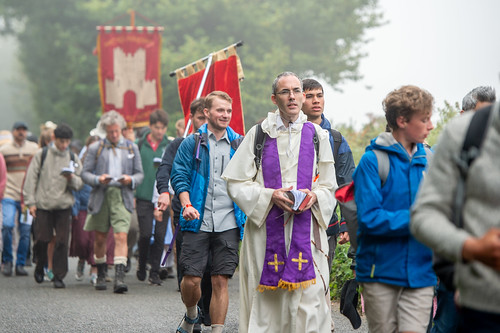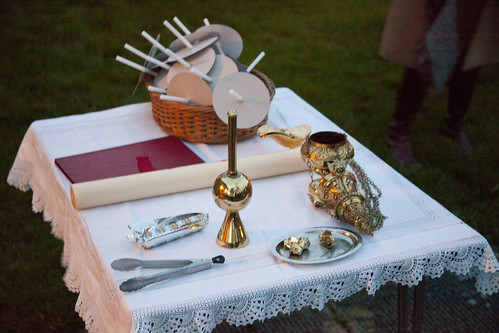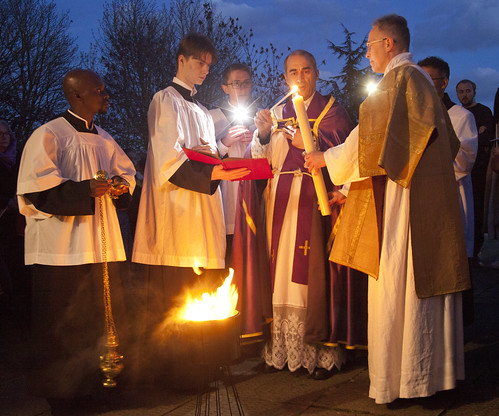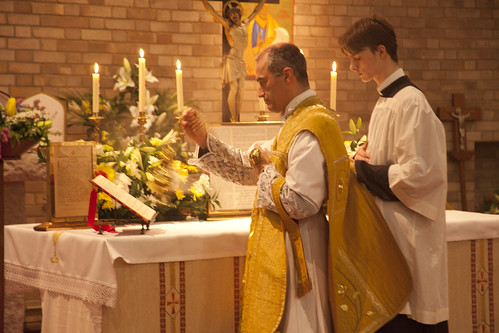Chairman's Blog
Roger Buck reviews 'The Latin Mass and the Intellectuals'
Roger Buck, author of The Gentle Traditionalist and Cor Jesu Sacratissimum: from Secularism and the New Age to Christendom Renewed, has kindly reviewed my book The Latin Mass and the Intellectuals on his website.
For one garners insight here from not one—but many cultured, thoughtful, even brilliant men and women hailed in their fields, even sometimes hailed as geniuses.
Their brilliance is evident in the book and these profound souls were often astoundingly prophetic as to the steep price the Church would pay for sacrificing her liturgy. Indeed, as the non-Catholics here also recognised, the West itself would pay a steep price. A great irony in the book is that these were all lay people, even at times agnostic or atheist ones, but who clearly saw things the clerics could not.
What is needed in the battle for the Mass is not ‘clickbait’, Internet flames, snide memes, specious arguments from statistics or other trivialities—but precisely the profound depths Joseph Shaw reveals in this book.
I cannot recommend it enough. Turn off the Internet, read it contemplatively, listening attentively to the great minds on offer here—and see if you do not emerge with a deeper, wiser perspective as a result. And if you have friends still dithering on the fence as to this central battle of our time, buy them a copy and beg them to read it, too! It is that important.
Read the whole thing there.
More about the book here.
Guild of St Clare Sponsorship for the Royal School of Needlework, 2024
 |
| A Guild of St Clare Sewing Retreat |
Do you have a passion for hand embroidery and the restoration of fine vestments?
We are pleased to announce an exciting sponsorship opportunity for those interested in studying Needlework.
The Guild of St Clare is offering sponsorship for candidates wishing to study The Royal School of Needlework Certificate Course.
Deadline for applications is the 23rd June 2024
See HERE for more information and how to apply.
Iota Unum talks: Dan Hitchens and Sebastian Morello
 |
| Sr Clare Crockett |
I am pleased to announce two talks in the Latin Mass Society's Iota Unum series:
Friday 17th May, Dan Hitchens: ‘Sister Clare Crockett: a modern saint?’
Friday 28th June, Sebastian Morello: ‘Cartesian Catholicism and the Loss of Sacred Space’
Talks take place in the basement of Our Lady of the Assumption; please enter by the back entrance into the basement: 24 Golden Square, W1F 9JR near Piccadilly Tube Station (click for a map).
Doors open at 6:30pm; the talk will start at 7pm.
There is a charge of £5 on the door to cover refreshments and other expenses.
New edition of Gregorius Magnus published
This edition has a photographic report on the Summorum Pontificum Ad Petri Sedem pilgrimage, articles from new contributors, and contributions from the the magazines of the FIUV's member associations.
- Pope Benedict, one year on: Caroline Farey on 'The Way of Beauty'; Andrew Cusack on the liberation of the Old Mass.
- 120 year anniversary of Evelyn Waugh
- St Thomas Becket, by Thomas Colsey
- T.S. Eliot, by Robert Lazu Kmita
- Cardinal Ambongo on Fiducia supplicans, by Michael Haynes
- A Traditional Catholic school in Nigeria
See it on ISSUU, optimised for mobile devices.
Download the pdf for viewing on a screen.
Download the high-res pdf for printing.
Join the email list here.
Please support the FIUV by becoming a Friend.
Why do bishops cover up sexual abuse? In the European Conservative
My article begins:
The Catholic Church’s clerical sex abuse crisis may be said to have entered public consciousness with the Boston Globe’s revelations, which began in January 2002, and it has yet to go away. The standard explanation of it is that bishops and other superiors covered up abuse in order to protect the reputation of the Church, but this is almost the opposite of the truth. The reality is that sexual abuse was covered up as part of a strategy of calculated risk-taking, not for the benefit of the institution, but for the benefit of the superior.
I spent many years in Roman Catholic institutions populated by abusers and, while never a victim myself, I got to know some of the perpetrators and some of those who protected them. My argument, however, is based on well-established patterns of behaviour which can be found beyond the confines of the Roman Church. These patterns extend back in time at least as far as the 1960s, and they continue to persist.
Catholic Monarchs and bad laws
 |
| Requiem Mass for the late Queen Elizabeth II at St Mary Moorfields, London, 8th October 2022, organised by the Latin Mass Society |
Jonathan Van Maren’s European Conservative article, “Europe’s Pro-life Royals,” raises once again the question of Catholic monarchs and the legalization of abortion.
Van Maren helpfully provides some detail on how King Baudouin of Belgium avoided signing Belgium’s 1990 abortion law, and how Prince Alois of Liechtenstein defeated abortion in Liechtenstein. The courage and determination of these monarchs are an example to us all, and particularly to Catholic statesmen tempted to compromise in their defense of the most vulnerable in society.
They followed quite different strategies, because of the quite different political and constitutional circumstances in which they found themselves. Before we criticize any heads of state for acting as they did, we need to be clear what strategies we think were available in their cases.
Traditional Triduum Services restricted: in the Catholic Herald
 |
| Easter Vigil at St Mary Moorfields in 2023 |
The liturgical celebrations of the Easter Triduum – spanning Maundy Thursday to Easter Sunday – according to the ancient (Traditional Latin) rite will not take place in the Diocese of Westminster this year.
The changes follows the decision of Cardinal Vincent Nichols, archbishop of the diocese, and the head of Catholics in England and Wales, to discontinue the custom of featuring liturgy over the Easter weekend in the traditional form – something which had taken place annually since the 1990s.
Cardinal Nichols acknowledged in correspondence to Fr Michael Cullinan denying the latter’s request to host this year’s triduum at St Mary Moorfields – the only Catholic church in The Square Mile of the City of London – that he was aware the decision would cause disappointment.
“I realise that this will disappoint some people,” he revealed, “but I have to keep the wider picture in view”, in an email which has been shown to the Herald.
Easter Vigil in Bedford: photos
Mass of the Ages film, Part 3: Guardians of Tradition
Walsingham Pilgrimage Volunteers needed, 5: First Aiders and photographers
 |
| A photo by a professional photographer, John Aron. See what he's done with the depth of field? |
Booking is now open for the LMS Walking Pilgrimage to Walsingham, which takes place from Thursday 22nd August to Sunday 25th August. But before we can welcome 200+ pilgrims, we need to be able to look after them. This is the last of these appeals, for two more categories of volunteers: First Aiders and photographers.
 |
| Taken by me. |
 |
| Another by John Aron. |













